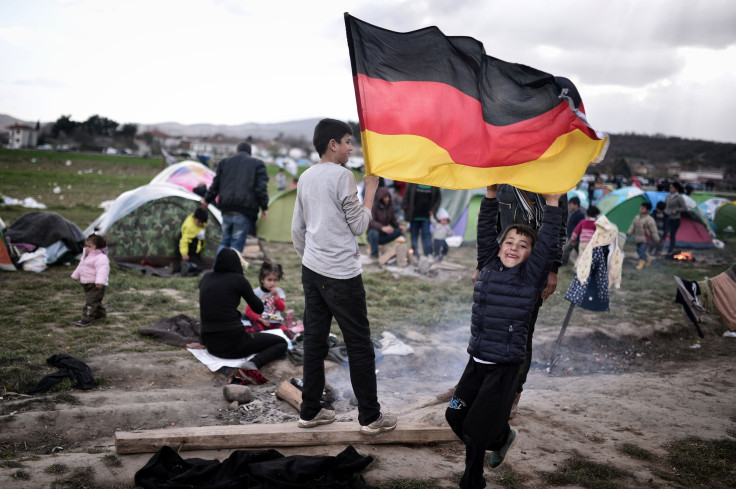EU Refugee Crisis In Germany: Asylum-Seeker Arrivals Drop Amid Schengen Border Closures

The German Ministry of the Interior released the figures for asylum-seeker arrivals in the month of February, showing a drop in number by nearly a third, the Local reported. The nation has been a top destination for refugees, and news of the dip came as German Chancellor Angela Merkel and other European leaders neared a migration deal with Turkey over refugee resettlement while an ongoing crisis at the Greek-Macedonian border continued.
The northern European nation saw some 61,428 asylum-seekers in February, plunging by a third from January. Germany received more than 1.1 million asylum-seekers in 2015, making it the top destination for refugees in Europe. The nation's strong economy, coupled with Merkel's outspoken welcome of refugees, drew a large number of applicants.
Refugees, the vast majority of whom are fleeing violent conflict in the Middle East and in Syria in particular, arrive in Europe by way of Greece. They take smugglers' boats from Turkey because of its close proximity to Iraq and Syria, where many people are looking to escape civil war and the threat of the terror organization known as the Islamic State group.
Greece has served as a transit point for refugees throughout 2015 and into 2016 as they seek asylum in Northern Europe. They have been taking the so-called Balkans route through Macedonia and up toward Serbia and Croatia toward Austria and Germany or other destinations in the European Union.
European Union leaders have asked Turkey to crack down on smuggling to prevent refugees from landing in Greece, and the EU neared a deal Tuesday that would include Turkey taking back a number of asylum-seekers in exchange for an accelerated application to the EU.
Closures throughout the Balkan countries, including between Macedonia and Greece most notably, have caused a bottleneck of people stranded along the northern border of Greece, and may be contributing to the plunge in arrivals to Germany. A back-up of people has also occurred in other parts of Europe along the West Balkan routes, as nations such as Austria and Hungary, which are part of the Schengen freedom of movement agreement, have increasingly closed their doors to refugees.
© Copyright IBTimes 2025. All rights reserved.






















